
views
- Shampoo and condition your hair as you normally would. Then, detangle your damp hair with a comb and part it down the center.
- Use your comb to create additional parts that run parallel to the center part. Moisturize each section of hair and clip them back individually.
- Proceed with the braiding style of your choice. For a simple solution, do two strand twists. You could also braid cornrows for a more intricate look.
Preparing Your Hair For Braids

Wash your hair with shampoo and conditioner. Make sure to wash your scalp with a non-sulfurous clarifying shampoo to get it as clean. Use a moisturizing conditioner to fortify your hair and make it as soft as possible before you braid it. Read the label on the shampoo and conditioner and make sure that it's intended for your hair texture. You can read the ingredients label to make sure that it doesn't have sulfur. Sulfur can dry out and damage your hair, especially if your hair is naturally dry or coarse.
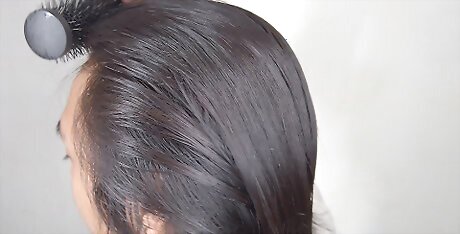
Detangle your hair with a brush or comb. Brush your hair right after you wash it to get all of the knots and tangles out. Opt for a wide-toothed comb if your hair is more coarse and/or curly. If your hair has dried since you've washed it, you'll need to re-wet it with water by misting it with a spray bottle. Continue brushing or combing until your hair is smooth and there aren't any knots in it. Getting the knots and tangles out of your hair with a brush or a comb will make braiding it much easier. To remove stubborn knots and tangles, begin at the ends of your hair and work your way up to the roots.
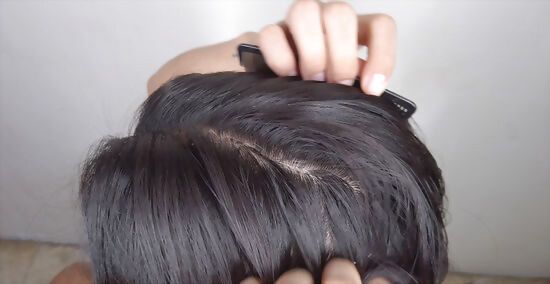
Create a center part in the middle of your head. Use the teeth of a comb to create a part, from the front of your hair to the back. Drag the teeth of the comb across your head so that it separates the hair into two portions. When done correctly, you'll see a line where your scalp is. Make sure to make this part as straight as possible, as it will affect the placement of the other braids. From here on out, braiding your hair will be difficult to do yourself, so you may want to get someone to help.
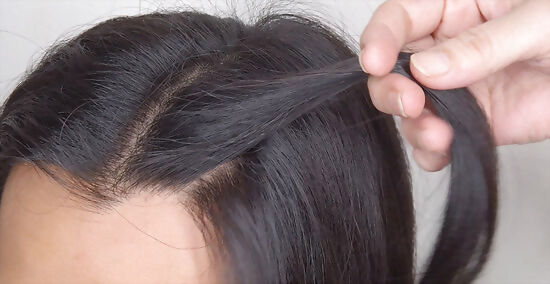
Part your hair into sections. Use your comb to create additional parts that run parallel to the center part that you created. The hair in between these parts will be the hair that makes up your braids, so keep this in mind as you're parting it. Decide how many braids you want and how large you want the braids to be as you create your parts.
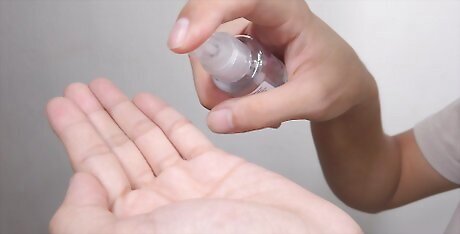
Moisturize your hair. As you create the parts, hair will start bunching up in one area. Grab these strands of hair and put moisturizer in it. This will soften the strands and make them easier to work with as you braid. Shea butter, argan oil, hair butter, leave-in conditioners, and olive oil can all be used as hair moisturizers. You can purchase moisturizers online or at the salon.
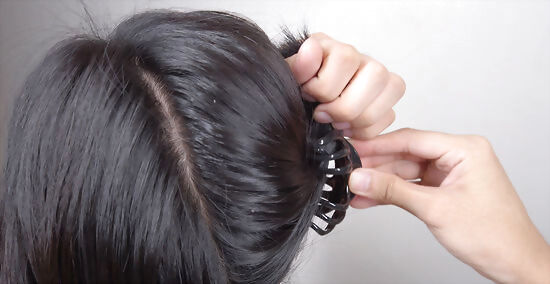
Clip up the different sections of hair. Take the bunched up hair that you just moisturized and hold it in place with a hair clip or bobby pin. Do this with the rest of your hair after it's been moisturized. Once you're done, you should have several visible parts and the hair in between them should be pinned with bobby pins or hair clips.
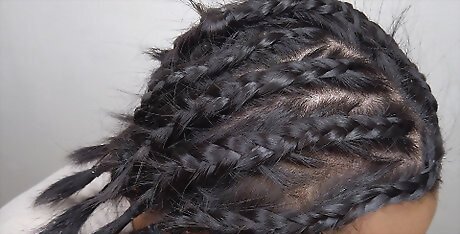
Choose a braiding style. The braiding style will depend on how long your hair is. Use a two strand twist if your hair is 1 inch (2.5 cm) or shorter, as creating a Dutch braid is difficult with shorter hair. If you have more than 1 inch (2.5 cm) of hair, you can try a dutch braid style. EXPERT TIP Ndeye Anta Niang Ndeye Anta Niang Hair Stylist & Master Braider Ndeye Anta Niang is a Hair Stylist, Master Braider, and Founder of AntaBraids, a traveling braiding service based in New York City. Ndeye has over 20 years of experience in African hair including braiding box braids, Senegalese twists, crochet braids, faux dread locs, goddess locs, kinky twists, and lakhass braids. Ndeye was the first female of her tribe in Africa to move to America and is now sharing her knowledge of African braids passed on from generation to generation. Ndeye Anta Niang Ndeye Anta Niang Hair Stylist & Master Braider Did You Know? It's difficult to make cornrows on short hair, unless they're super small. However, men with short hair can get extension cornrows, dread extensions, or box braids to style in a bun if they can find someone who can braid short hair.
Doing a Two Strand Twist
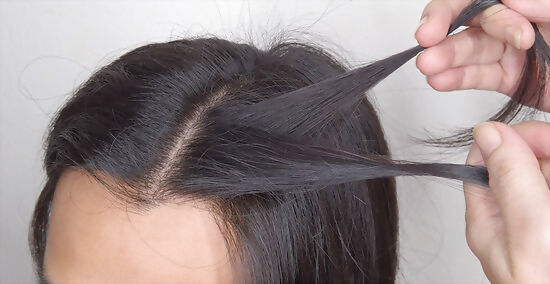
Take two portions of hair on the front of your head and separate them. The two portions of hair that you grab should be next to each other and along the edge of a part. The amount of hair that you grab will determine the size of the braid.
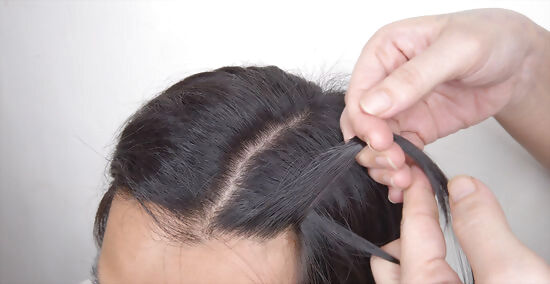
Twist one strand of hair over the other strand of hair. Twist one portion of hair over the other. Then, twist the other portion of hair over and around it. Tighten the braid by pulling on both ends of your hair.
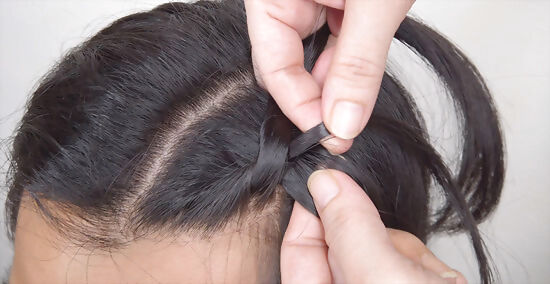
Continue to twist your hair to the back of your head. Grab more hair and add it to the braid after every twist. Continue to twist the strands over each other and work towards the back of your head along the part that you created. Every time you make another twist, you should grab a little more hair along the part so that you can extend the braid back. The more hair you grab, the thicker your braid will be.

Continue twisting the braid to the back of your head. Continue twisting your hair all the way to the back of your head until you don't have any more hair to grab. The braid should be along the part and run across the entire top of your head.
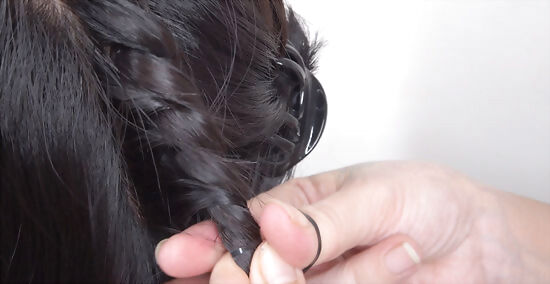
Secure the end of the braid with a rubber band if necessary. Depending on your hair's texture, you may need a rubber band to secure the braid. If your braided hair tends to unravel on its own, take a small hair rubber band and wrap it around the end of the braid until the rubber band is tight.
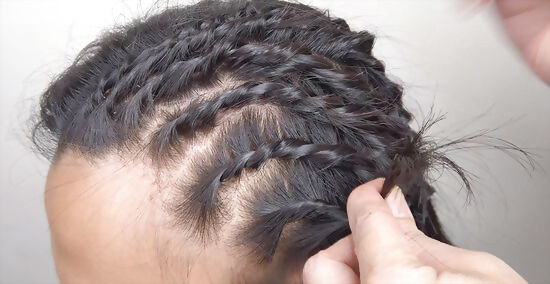
Braid the rest of your hair. Create as many braids as you want over your head until you're satisfied. Look in the mirror and see if the braids look good. It may take some practice until you can braid your hair the way that you want.
Making Cornrows
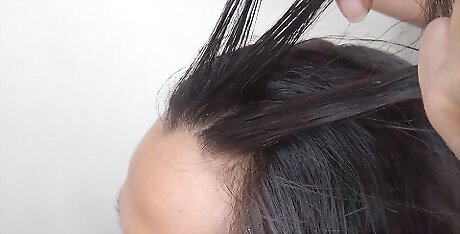
Grab and separate three portions of hair along the part. Separate the hair into three small but equal pieces--a left portion, a middle portion, and a right portion. This hair will make up your braid.
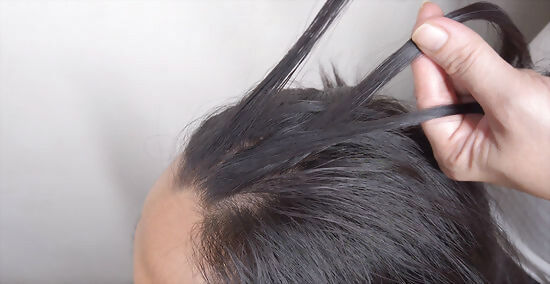
Cross the left section under the middle section. Once you do this the left section will become the middle section because you crossed it under. Continue to hold all three sections separately with your fingertips and make sure that they don't come undone.
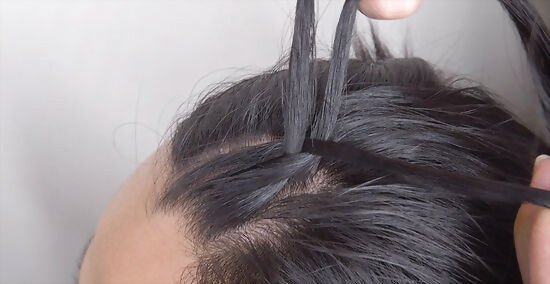
Cross the right section under the middle section. Once you cross the right section under the middle section, the braid should start to form. Pull on the ends of your hair to tighten the braid.
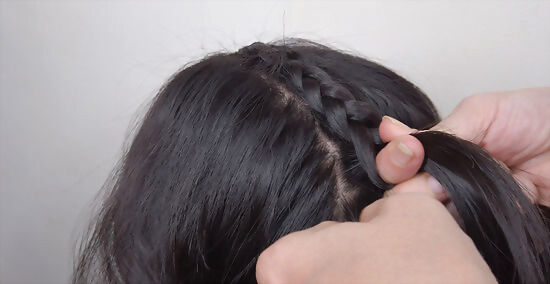
Continue to braid from the front to the back of your head. Repeat the process and grab more hair as you continue braiding. Make sure that the amount of hair you're adding to the braid is the same each time so that it looks uniform.
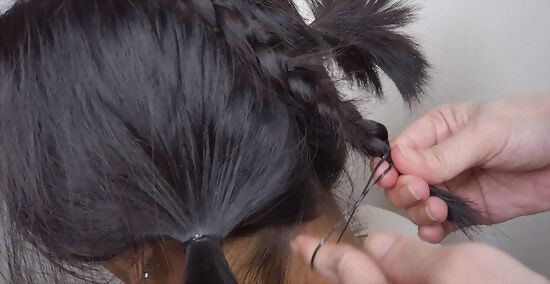
Tie a rubber band around the end of the braid if necessary. Tying a rubber band around your hair will hold the braid in place and ensure that it won't come undone. Wrap the rubber band enough times so that it's tight on your braids. You may not need to use rubber bands if your braids stay in tact without them.
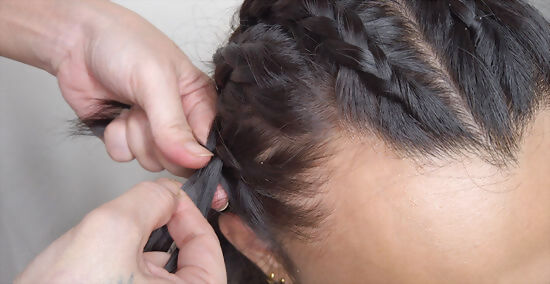
Braid the rest of your hair. To get the traditional cornrow look, you'll want to create several braids that run across the top of your head. Each braid should be placed ⁄2–1 inch (1.3–2.5 cm) apart from one another. Once you're done, look in the mirror and make sure that the braids are straight.
Creating Different Styles
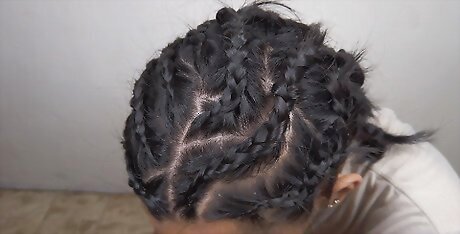
Make wavy parts for wavy braids. Instead of creating straight parts, try to create wavy parts by moving the teeth of the comb side to side as you create the part. Then, braid your hair as you normally would along the part. This will dictate the shape of the braids and can create a cool, wavy effect.
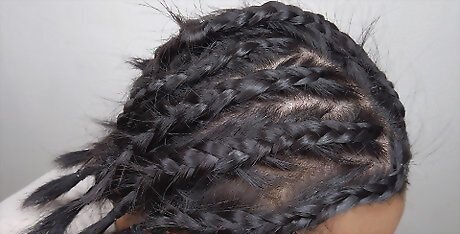
Get creative with your part placement. Braided hair isn't limited to cornrows that run from front to back. Once you become proficient at tying braids, try to mix up your part placement. Create parts that run horizontally across your head instead of front to back, or create parts that make shapes on your head for an interesting style. For example, you can create zig-zag braids or braids that form an X.
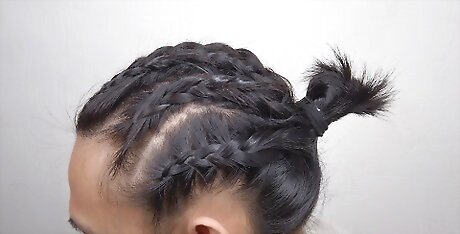
Create a man bun if you have longer hair on the top of your head. If your head isn't entirely covered in braids, comb your non-braided hair back and tie it to the end of the braid with a rubber band. This will create a topknot, or man bun on the top of your head and will give your braid a fresh and trendy look. This style works best for hair that's longer than 2–3 inches (5.1–7.6 cm).















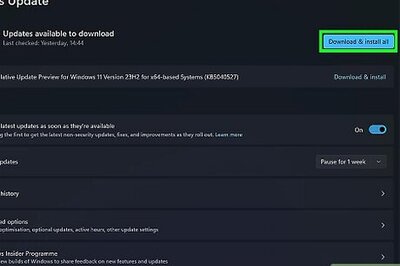
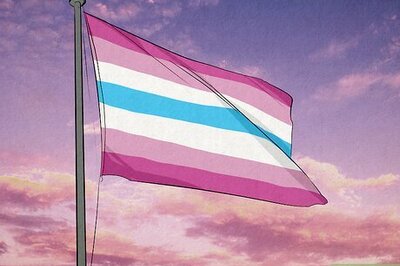
Comments
0 comment